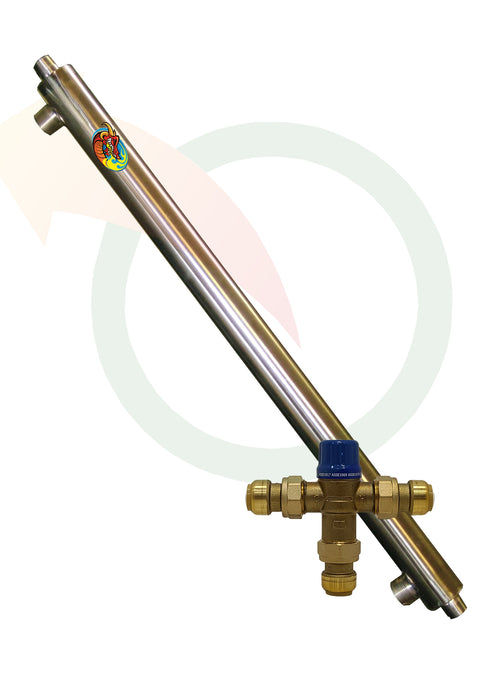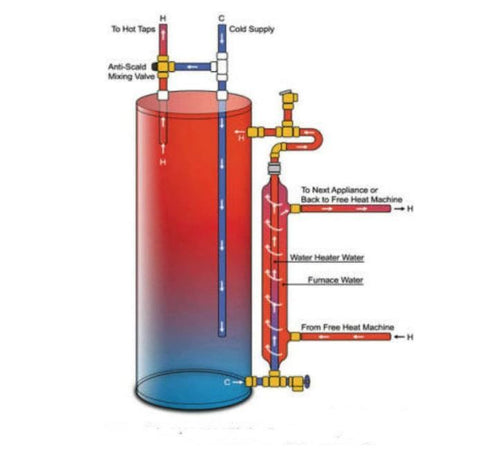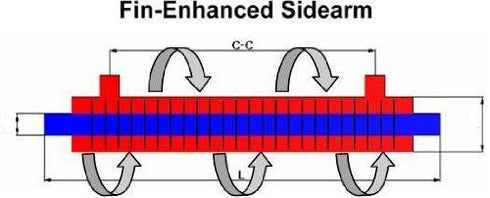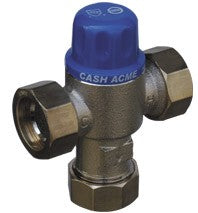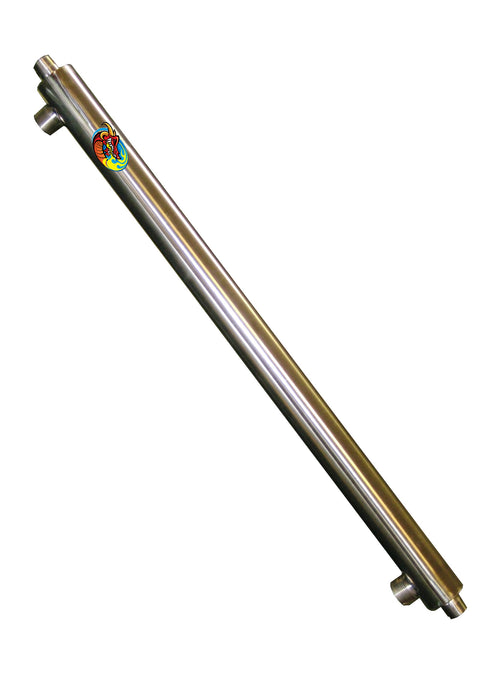Product Description
The Kit includes a mixing valve (MV34S or MV34SB), sidearm and diagrams for easy installation
Typical Applications
Ideal for residential heating and plumbing applications
MV34S Cash Acme HeatGuard® 110-D Tempering Valve
Sweat intended for installation at the water heater to distribute controlled temperature water through a domestic hot water system. The valve delivers water at a maximum of 120° F (49°C), allowing the heater to be set at 140° F (60°C) or higher, thus providing a greater effective volume of hot water and reducing the chances of Legionellae bacteria growth in the water.
SideArm Heat Exchanger 38.4"
Made of 304 stainless steel, fin-enhanced sidearm increases heat transfer efficiency significantly by using a finned tube internally, which has surface area five to eight times bigger than bare tube and produces great turbulence on system side.
With fin-enhanced sidearm you not only need a shorter unit, but get bigger capacity and faster heating.
Double walled fin-enhanced sidearms are available upon request. Due to concerns about cross contamination of potable water several US States enacted regulations to prevent this possibility from occurring. Double wall heat exchangers presented the most effective means of protection from cross contamination. We now provide a vented double walled sidearm which meets the criteria of these regulations.
Due to the compact size and lightweight of the sidearm heat exchanger these units are ideal for residential heating and plumbing applications. Also called domestic water heat exchangers, they are typically used to heat domestic water using either a conventional boiler, outdoor wood furnace or a solar hot water system. Typically the domestic water is circulated by means of the thermosiphon principle which saves on the cost of a pump and the associated electrical costs. In cases where faster heat recovery is required the domestic hot water should be circulated by means of a pump. Pump circulation will typically provide a heat recovery 3 to 4 times greater than thermosiphoning domestic water coils.

